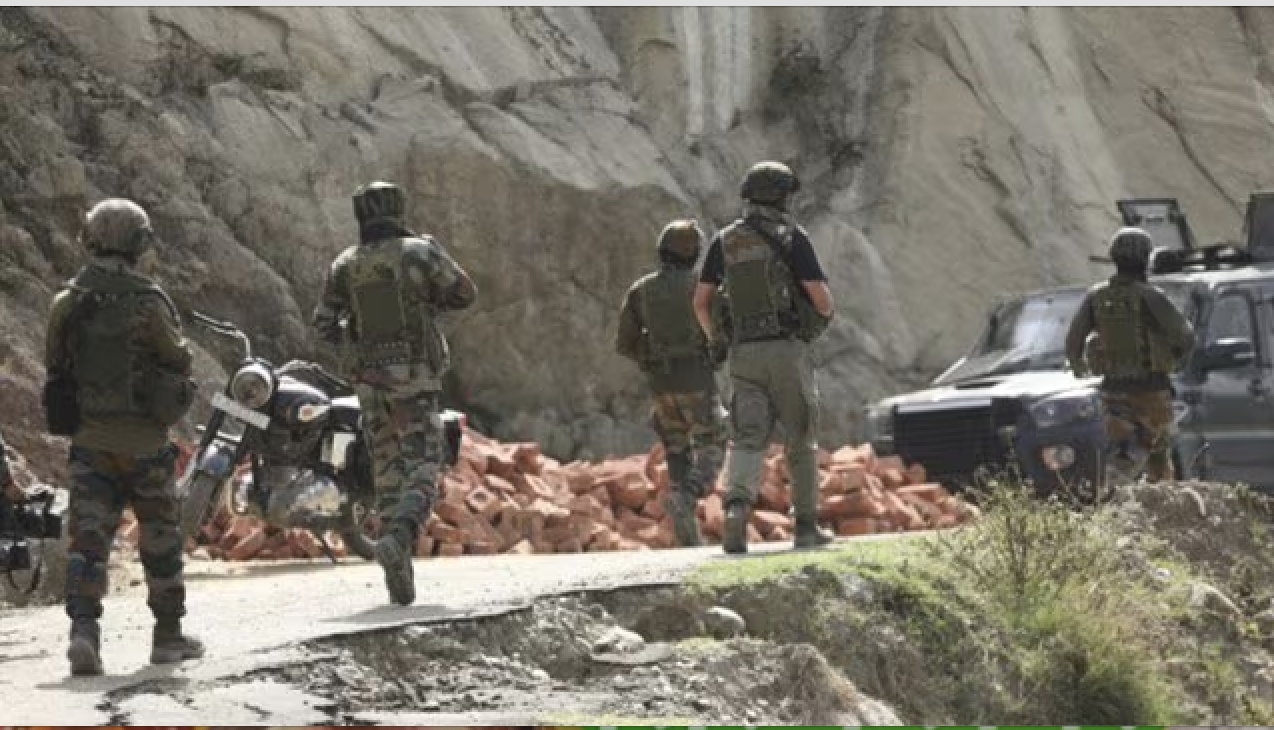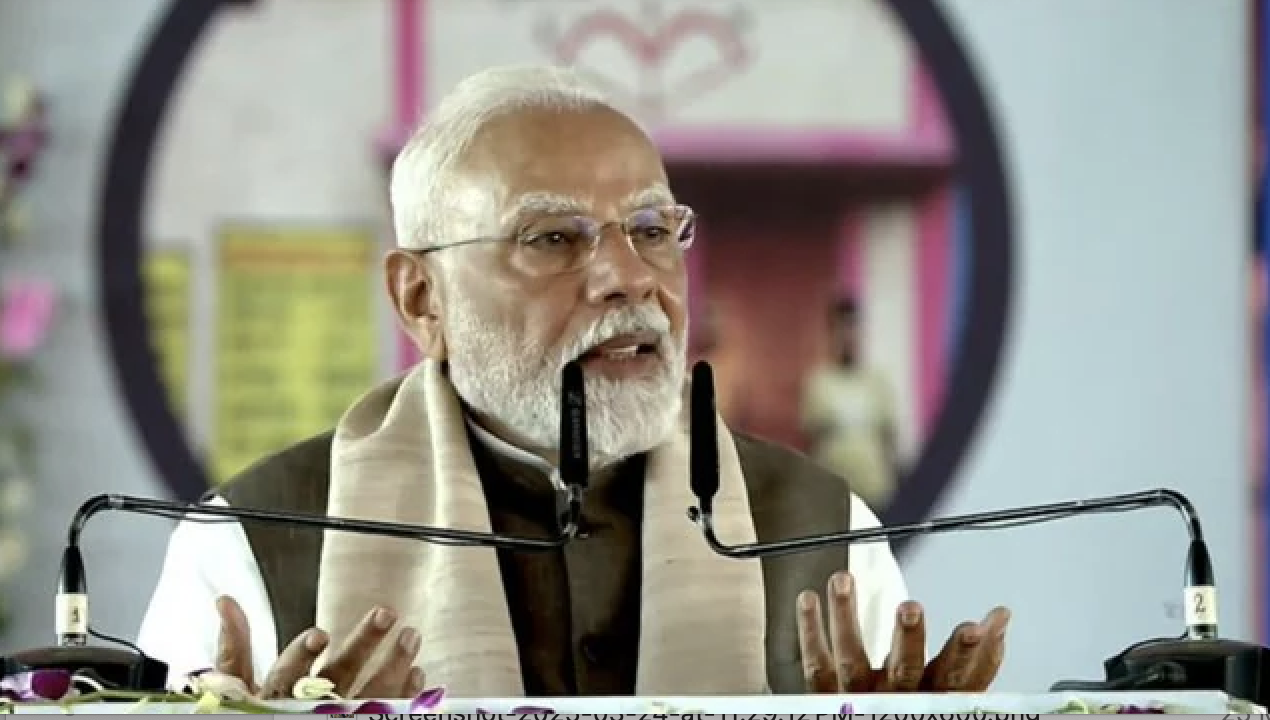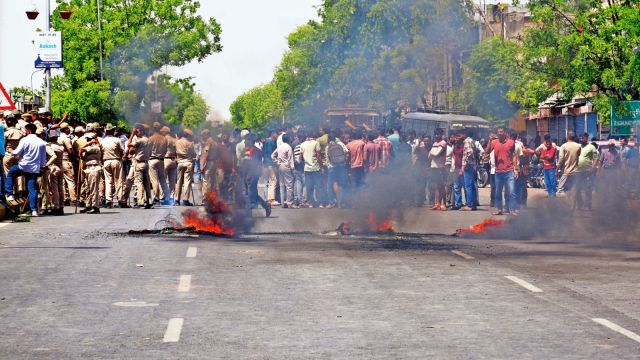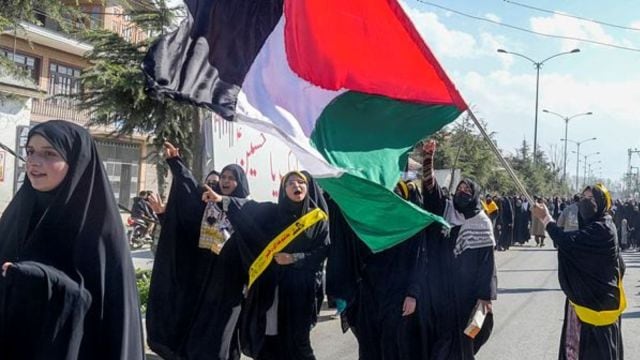
By ZENAIRA BAKHSH / Maktoob Media
Shaban Ganai, a labourer in his 60s, had to sell off his cattle and land in north Kashmir’s Bandipora district to arrange money to travel over a thousand kilometres to meet his son, 22-year-old Shaukat Ganai, in Uttar Pradesh’s Agra jail.
“I had one kanal land, worth 10 lac rupees, in my village. When the buyer saw my desperation, he only gave me 2 lac rupees,” said Shaukat. “I couldn’t say no, I was desperate to meet my son.”
In the five months since then, multiple trips to Agra exhausted his savings, and Shaban was compelled to take loans to pay for the legal expenses.
Shaukat, a fourth-year engineering student, was arrested along with two other Kashmiri students allegedly for celebrating Pakistan’s victory against India in the T20 cricket World Cup in October 2021. The Ganai family came to know about the arrests two days later, through the media.
They are accused of sharing celebratory messages over Whatsapp and charged under Indian Penal Code sections 153-A, the enmity between communities; and 505-(1) (B), intent to cause, or which is likely to cause, fear or alarm to the public; besides 66-F, cyber-terrorism, of the Information Technology Act.
On March 30, Allahabad High Court observed that “the unity of India is not made of bamboo reeds that will bend to the passing winds of empty slogans” as it granted bail to the three students but it demanded a surety amount of Rupees 2,00,000 — an amount Shaban can’t afford.
Moreover, the three students still remain in jail as the families didn’t have the funds or local guarantors to sign their release papers. “Asking for money makes me feel ashamed but what other option do I have?” said Shaban.
“God put me through this and I am being patient.”
Families punished
Shahid Naikoo, a 27-year-old from south Kashmir’s Shopian, was arrested in January 2019 and was later transferred to Kotbalwal jail in Jammu where he was booked under the Public Safety Act (PSA) which allows the detention of an individual for up to two years without trial.
Shahid was charged with rioting, an attempt to murder, and some sections under the arms act.
“They told us that they had caught militants in his vehicle,” said Abdul Salam Naikoo, his father.
In four years, Shahid has been booked under three consecutive PSAs and has been shifted from one jail to another. He has been lodged in the Jhajjar Kotli jail in Haryana and twice in Jammu’s Kotbalwal jail, where he is currently being held.
Whenever a PSA order was quashed, Abdul Salam said, Shahid would be brought back and kept at the Shopian police station for months before being booked under another PSA.
While Shahid was in Kotbalwal jail, his family would visit him almost every month but travelling to Haryana was even more difficult and exhausted their savings.
“We have a loan of 3 lac rupees,” said Abdul Salam, adding that during the Covid-19 lockdown, the family travelled all the way to Jhajjar Kotli only to be denied a meeting with their son due to pandemic prevention protocols.
Back home, Shahid earned well from his printing press business. Since his arrest, his elder brother, a private school teacher, is unable to manage household expenses and that of fighting his case.
“The private schools were shut since the abrogation and later due to Covid-19. My elder son wasn’t even getting paid,” Abdul Salam told Maktoob.
The family still continues to pay the rent for Shahid’s shop in Shopian town’s market in the hope of his return one day.
The Naikoo family has spent about 12 lac rupees fighting for his release and travelling outside J&K has been traumatic. “We are constantly scared of even telling the hotel owners why we are there or where we are going. We don’t know what they would think of us. They can even name us terrorists,” said Abdul Salam. “Who would help us there?”
During their meetings with Shahid, the family has only been able to look at him through a glass screen, often resulting in emotional breakdowns and disappointment. “We travel so far just to see him from a distance for a few moments,” he said.
The family still manages to send monthly expenses to their son. “Even today whenever we meet him, he gets really emotional,” he said. “He keeps asking for a chance to start again but they don’t give him.”
The family has made multiple requests to have Shahid shifted to the Central Jail in Kashmir but in vain. “The police say that this is the government’s order. This has been an emotional abuse for his family,” said Abdul Salam. “It came as a hard blow.”
A tormenting process
For a family travelling outside Kashmir to meet their jailed kin, they usually need permission from the jail authorities and are only allowed a meeting once a week, said a lawyer based in Kashmir, who did not want to be named.
“It burns a hole in their pocket,” he said.
The lawyer said families travelling to meet the detainees are often afraid of the hostile environment in other states, the risk of being identified not only as Kashmiris but as a family of a jailed Kashmiri. “They can easily be accused of being anti-state and anti-security,” he said.
Since individuals can be jailed without trial for up to two years under the PSA, the lawyer said they are sent to other states till the court decides on their petition. “In UAPA, they have to produce them [detenu] before the court to seek remand [at prescribed intervals]. That is not the case with PSA,” he said.
Aadil Abdullah, another lawyer based in Srinagar, said in PSA cases, the shifting of a detainee to jails outside Kashmir is decided completely by the government while in under trial cases, it is decided by the court.
“As per the law that came after the abrogation, a detainee can be sent to any state of the country,” he said, adding that most families “aren’t able to follow the procedure of getting an order from the court directing the jail authorities to allow them to meet.”
While in under trial cases, the lawyers are able to arrange meetings through video calling, in PSA cases, said Abdullah, an affidavit has to be filed and sent through an e-mail to the concerned jail. But, “people are not so technologically sound.”
Abdullah said sometimes he receives letters from the detainees explaining their “miserable condition” to him. “We try doing as much as possible through speeding up the cases and convincing families to be present on the day of the hearing,” he said.
Four years ago, when Shaukat got admission to an engineering course funded by the Prime Minister’s Special Scholarship Scheme meant for economically weak students of Jammu and Kashmir, his family was delighted.
With legal expenses piling up, Shaban and his other son, also a labourer, are now hardly able to provide for the family, which includes his wife and two daughters. “If not for the scholarship, I wouldn’t have been able to even think of educating Shaukat,” he said, who earns about 500 rupees on days he manages to find work.
“I had high hopes that he would change our lives,” said Shaban, who was hoping to retire after Shaukat would get a job, “but now I just want him to come home.”
This article first appeared on maktoobmedia.com






